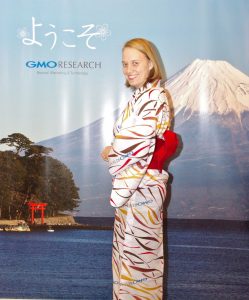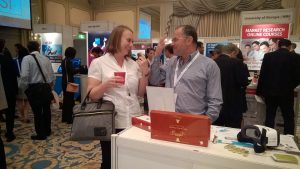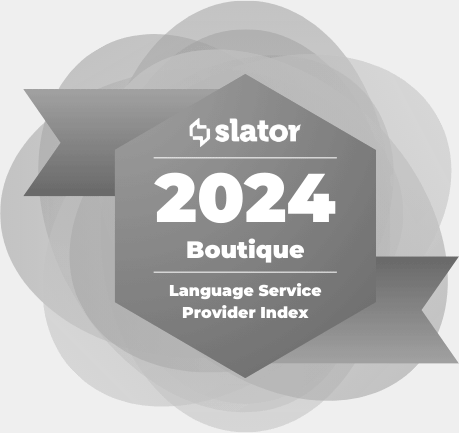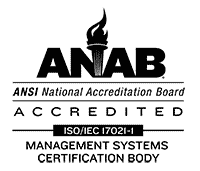Trends: APAC Market Research in Transition

The annual ESOMAR Asia Pacific conference this year was a three-day whirlwind of networking and future-focused discussion on the challenges of APAC market research. This year’s conference, which was held in Toyko, was sold out with over 400 attendees, including many of CETRA’s long-term partners such as Ipsos, SSI, Kantar, and GMI, to name a few.
There is no denying that the APAC market research field is in transition, and many of the keynote speakers shared the results of case studies that clearly showed the trends and attitudes that are shaping research in Asia today. Some sessions tackled the challenges of market research in the mobile age, while others celebrated the effectiveness of social research on global horrors, such as child trafficking.
The Power of Mobile in APAC Market Research
A key focus was that the newly mobile and relatively affluent young adult generation across Asia is living a lifestyle and consumer experience that is completely foreign to that of their parents and grandparents. Because of this, there is a great push to focus on technologies, content, and formatting that appeals to a generation of consumers who insist on things being simple, appealing to the eye, and integrated with their current technological preferences – namely, cell phones (particularly Androids for the Chinese market), but who are also deeply impacted by the culture and traditions that shaped them and which have a huge effect on how they spend their attention and resources.

We can expect to see many more app and mobile-based survey technologies coming our way, and the localization team at CETRA Ireland is poised to support mobile platform technologies for all kinds of global studies. The buzzwords on everyone’s lips was, “more with less.” Transcreation, the adaptation of content to match a location’s cultural and linguistic subtext, can ensure that small amounts of content are highly effective research tools, and making use of CETRA’s experienced transcreators will be the most efficient way to keep global studies streamlined yet still deeply relevant.
In 2020 it is estimated that 60% of the high-spending middle class globally will be in Asia. This will mark a shift in consumer research and where the highest “value for the effort” will be for global studies. The APAC region is made up of a large variety of vastly different, and sometimes conflicting, cultures. Understanding the cultures and voice of these exploding target markets will be essential in the upcoming years for APAC market research. CETRA can help. Let our word be your peace of mind as you take advantage of the new opportunities that research in Asia has to offer.
Kim Groff is a senior project manager of translation services at CETRA’s Seoul, Korea office. She can be contacted at kim.groff@cetra.com.




